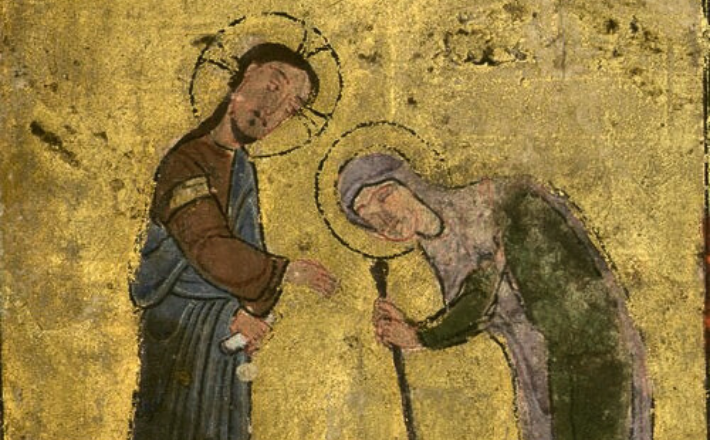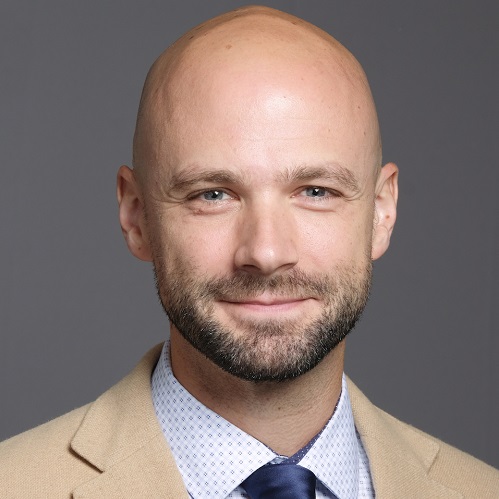Commentary on Jeremiah 1:4-10
Who am I?
Who are my people?
What do we want?
What are we building?
Are we ready to win?
These are the five questions that Charlene Carruthers asks of organizers of social movements.1 When I teach class periods or courses on prophetic preaching or preaching for social change, I build in significant time for students to reflect deeply on her questions. For community organizers and preachers who organize, clarity about the answers to these questions and the ability to consistently communicate that clarity to others is essential to effectively building impactful movements for change. Perhaps the same was true for many Hebrew prophets—persons we might identify as “organizers” today.
Jeremiah’s statement of identity and purpose has meaning for us as we seek to articulate our own identity and purpose as changemakers in our communities.
This passage is a call narrative, something of a fixture in Hebrew oracles. Call narratives are frequently placed at the very beginning of oracles, identifying the particular prophet and making a claim for why they should be trusted and taken seriously. Jeremiah contains numerous references to “false prophets” (for example, Jeremiah 23 and 27–29), and the reality of conflict between prophets necessitated that he differentiate himself from other prophets.
The text contains several dimensions that intensify Jeremiah’s claim to authority:
- In Jeremiah 1:2, God initiates the call, directly interfacing with Jeremiah in a personal way.
- Another fixture within call narratives throughout Hebrew oracles is initial unwillingness from the prophet to accept God’s call. Here Jeremiah protests because he is too young, and—like Moses in Exodus 4:10—because he does not speak well. This initial unwillingness to accept the call of God has an important function of intensifying the role of God’s authority and power in this call narrative and others. We know today that we can often be suspicious of persons who are too eager for positions of authority, as manifested in contemporary variations of the saying “The best leaders don’t want to lead.”
- The claim to authority is also strengthened through God’s promise of protection in verse 8b.
- Finally, a frequent theme in Jeremiah is that what he is sharing is a very explicit word from God. The wording that “the word of the LORD came to” Jeremiah, and variations of that phrase, appear scores of times in Jeremiah. The text clearly articulates that Jeremiah is a trustworthy mouthpiece for God. It is within Jeremiah’s interests as a prophet who wishes to make change to leave as little air as possible between God’s words and Jeremiah’s words.
The practical necessity of Jeremiah establishing his authority and calling from God is heightened by engaging religious and sociocultural realities that occurred during his lifetime. While there is a great deal of scholarly disagreement about the specifics of Jeremiah’s life and ministry, and how the book of Jeremiah and particular passages within it interface with specific historical timelines and events, we do know that he lived and worked during the reign of Josiah, who rose to the throne after his father, Amon, was assassinated. Josiah initiated intense religious reforms, eradicating idolatry and restoring the temple in Jerusalem as the central site of worship of God.
Josiah was followed by Jehoahaz, who only reigned briefly and was then dethroned by Egyptian political influence and forcibly removed to Egypt. Jehoiakim was installed, and he was a king beholden to external powers (Egypt and Babylon), whom biblical and rabbinical sources document as being incredibly violent, idolatrous, and unjust. The dramatically shifting priorities of the monarchs reflect a general milieu of religious and social conflict amid which Jeremiah lived, and while we do not know exactly when this passage was written, we get a sense of the severe conflicts Jeremiah may have been addressing.
Who is Jeremiah, and who are his people?
For Jeremiah, the question of personal identity is blended with communal identity. In Jeremiah 1:1–3, he is situated as connected to the established religious order through the tribe of Benjamin, and this is the religious order he will exhort repeatedly throughout the book. The text explicitly states up front that he does so as an insider, fully aware of his place as a member of the tribe of Benjamin. This sets up an insider/outsider dynamic throughout his ministry, which may be familiar to many preachers and advocates for change.
What does Jeremiah want, and what is he building?
There is also an explicitly clear religious and political agenda that Jeremiah shares in this passage. Jeremiah is commanded by God to seek the overthrow of the nations—possibly referencing Egypt and Babylon, who exert violent power over Judah. It doesn’t get more political than that. However, Jeremiah’s mission is not just deconstructive but also constructive. God has called him to “build and to plant.” While less overt, this is both a religious and a political imperative to work for a better world for God’s people. These deconstructive and constructive visions of the world can be seen throughout Jeremiah as he shifts between punitive and restorative messages.
As we reflect on the meaning and significance of this passage for preaching good news to God’s people today, there are several key themes to consider.
First, one way for preachers to interpret this passage in an enfleshed way is to spend time reflecting on your own call and on Carruthers’ five questions. Ask yourself, “Who am I?” “Who are my people?” Take the time to identify your communal and social identities and formations (often simply called social locations). How does God’s call on you to proclaim good news interface with your social locations amid hierarchies of race, gender, class, sexuality, and ability?
Then ask, “What do we want?” and “What are we building?” How do your call and identity integrate with your vision of the world and the agenda to achieve that? As a preacher, what is your religious agenda, political agenda, economic agenda, and cultural agenda? What are you seeking to tear down? What are you seeking to build? How does your sense of call relate to misogyny, cruelty to low-income persons, heterosexism, proto-fascism, transphobia, xenophobia, white nationalism, and white supremacy? As you engage these questions, you may find yourself beginning or continuing to articulate a call narrative that is eerily similar to Jeremiah’s.
Second, there is a shrewdness to this passage that has deep meaning for us today. We live in a world in which normativity shapes so many things, including people’s perceptions of how a “preacher” should be embodied. This extends to positions of leadership and power throughout our society—doctors, scientists, elected officials, et cetera. Many persons are excluded from the pulpit and from positions of leadership in church and society because of one or more reductive human characteristics. Women, racially minoritized persons, persons with disabilities, or queer persons who enter the pulpit or other positions of leadership in church and society often have to constantly do extra labor to overcome the spoken or unspoken normativities through which they are received differently than persons with dominant social identities.
Jeremiah raises for us the importance of curating personal and communal authority. Claim your place in the pulpit or whichever space of proclamation or leadership you inhabit. Share who you are and who your people are. Share how you are specially called to inhabit this space. Share the vision you have of a more just world. Claim and curate your authority and power.
Third, we live in a broken world in which there is so much harm to be torn down and destroyed. Let’s be very clear: It is a task of a preacher who proclaims the liberating presence and action of God in the world to do just that and to do it well. Deeply analyze and critically deconstruct the local manifestations of systems of capitalism, white supremacy, patriarchy, ability, heterosexism, and other systemic expressions of violence, and also present a constructive vision of a more just world. What do you seek to build? Is your sermon activating the community of faith to build God’s kin-dom here and now—even if in small, never-inconsequential ways? This is the hard work of building the world anew.
This passage is the deeply personal call narrative of a prophet seeking to make the world a more just place, and it can hit close to home for preachers, leaders, and advocates for change. But this passage can also have deep meaning for all persons of faith who understand themselves to be called to work for change in our world. How might your own call narrative, identity, and purpose as a preacher help you effectively communicate good news from this passage? How can you help your people encounter and reflect on the dimensions of prophetic ministry that this passage reveals, while also helping them deeply engage their own sense of call to serve God in ways that make change in our world?
Notes
- These are rendered as three questions in: Charlene Carruthers. Unapologetic: A Black, Queer, and Feminist Mandate for Radical Movements (Boston: Beacon, 2018). Carruthers has used a variation of these in later projects such as: Charlene Carruthers, “Five Questions for the Left: Developing Grounded Assessments for Transformation,” Incite Seminars, accessed May 20, 2025, https://inciteseminars.com/five-questions-for-the-left/.


August 24, 2025